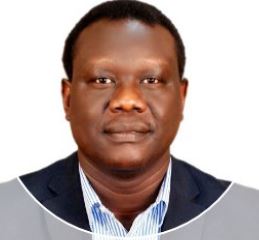BY AYINE NIGO (PhD/FHEA)
While we are optimistic about progress in the Tumaini peace talks, it is important to bring attention to the emerging situation in Kenya. Specifically, the youth, commonly called Gen Z, have called for civil protests this week. Although this is a domestic matter, the civil unrest could have ramifications on the High-Level Mediation for South Sudan (HLMSS) Peace negotiations in Nairobi and potentially impact the peace prospects in South Sudan. With the current trend, the President has limited options, which could effectively affect the prioritization of HLMSS.
The Tumaini Initiative in Nairobi encompasses diplomatic endeavors to resolve the persisting conflicts in South Sudan. Nairobi serves as a pivotal setting for these deliberations, which engage a spectrum of stakeholders, including South Sudan’s government, opposition factions, and international mediators. Their primary objective is to attain a sustainable peace agreement before the expiration of the Road Map in December 2024 in lieu of R-ARCSS.
Looking at the civil protests in Kenya, the commonalities often revolve around the underlying causes and the impacts of such demonstrations. As in many other places, civil protests in Kenya stem from public grievances like corruption, electoral injustices, economic disparities, and demands for better governance or social services. These expressions of discontent aim to hold leaders accountable and push for societal change.
There are commonalities with Tumaini that suggest a shared hope for positive outcomes from civil movements. Whether Tumaini is a specific initiative aiming to address the needs and desires of the protests or if it focuses on creating positive change and raising awareness about particular issues that lead to unrest, it highlights the collective hope that such movements will result in constructive developments in governance, social justice, and equality. This echoes the broader desires and demands of the Kenyan people for a better future, just like what the Tumaini Peace Initiative intends to achieve in South Sudan.
We see a situation in Kenya that has prevailed in Africa for a long time, albeit in South Sudan. The political systems, their supporting structures, and the avarice of politicians are prevalent throughout our continent, causing numerous young people to grow up in poverty due to the inability to finance their education or afford a living. If educated, the youth remain unemployed. Those who are talented and entrepreneurs are unable to start a business that could support their basic needs. Kenyan youth have taken a leading role in combatting corrupt leadership. Their courage in the face of tear gas and bullets from heavily armed security forces is unprecedented. Observing the events in Kenya, other African leaders will need to adapt or anticipate similar resistance from their young populace, including South Sudan.
To bring things into perspective, President Ruto’s two-year tenure directly resulted from the precedents set by previous administrations and perpetuated over time. A combination of ambition, naivety, and militancy characterized Ruto’s demeanor. His assertive rhetoric and unattainable commitments were evident. The expectation for the public to adhere to fiscal responsibility is incongruous with the systemic corruption within the public sector. A prudent approach for President Ruto would involve addressing the prevalent corruption in the public service, instituting governmental restructuring, and streamlining operations before imposing austerity measures on the public.
The economic framework of Kenya has historically been reliant on external factors beyond the nation’s sphere of influence, including tourism, the pivotal role of its port system as a transit hub, and Kenya’s longstanding neutral status. The enactment of the Finance Bill in parliament signified the commencement of another episode of external influence. Empirical data reveals that IMF financial programs, which infrequently prescribe suitable economic policies or adequate institutional reforms, are, at best, ineffectual and, at worst, function as inducements for imprudent investments and public policy decisions that diminish economic growth and foster long-term reliance on the IMF. Regrettably, these foundations have experienced diminishing vitality in recent times.
Kenya has become a contentious arena for foreign actors engaging in purported peace missions, posing risks to the well-being of its populace. Unfortunately, the civil protest and the wave of public demonstrations and violent unrest stemming from proposed tax hikes have brought to the forefront some of the nation’s most pressing challenges: high rates of youth unemployment, escalating poverty, and pronounced disparities in living standards between the affluent and the urban underprivileged. These developments appear poised to exacerbate rather than ameliorate the nation’s plight.
Therefore, the problems with protests in the context of these talks will revolve around several issues, including creating additional security concerns and diverting attention from negotiation efforts. Demonstrations may reflect the deep-seated grievances among the population, indicating that the peace talks must address the underlying root causes of the issues at play, such as leadership, governance, inequality, political disenfranchisement, ethnopolitics, and ethnic tensions, to be effective.
We maintain the view that the response of security forces to protests, occasionally characterized by excessive use of force, has the potential to heighten tensions between the government of Kenya and its citizens. This escalation could present a considerable challenge in the endeavor to achieve peace in South Sudan, a commonality that resonates with the protesters.
Dr Ayine Nigo is an author and lecturer at the University of Westminster, London, United Kingdom. He can be reached via nigoayine@gmail.com.
The views expressed in ‘opinion’ articles published by Radio Tamazuj are solely those of the writer. The veracity of any claims made is the responsibility of the author, not Radio Tamazuj.




